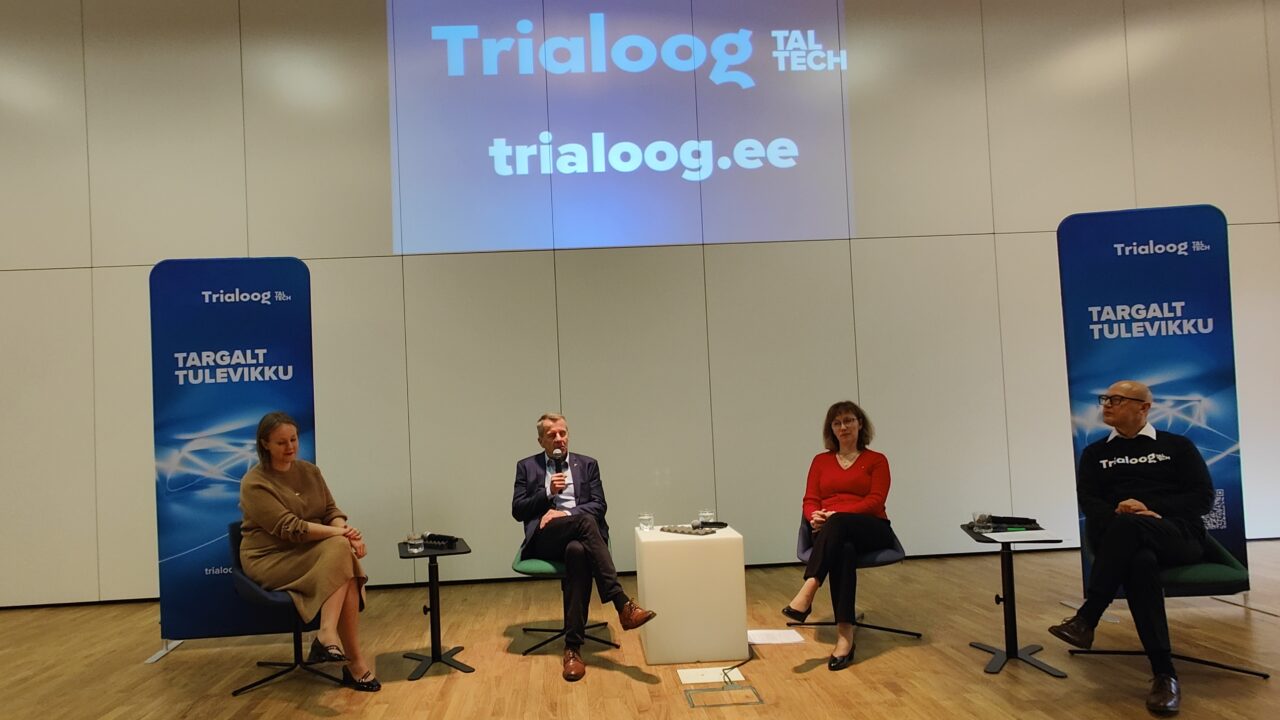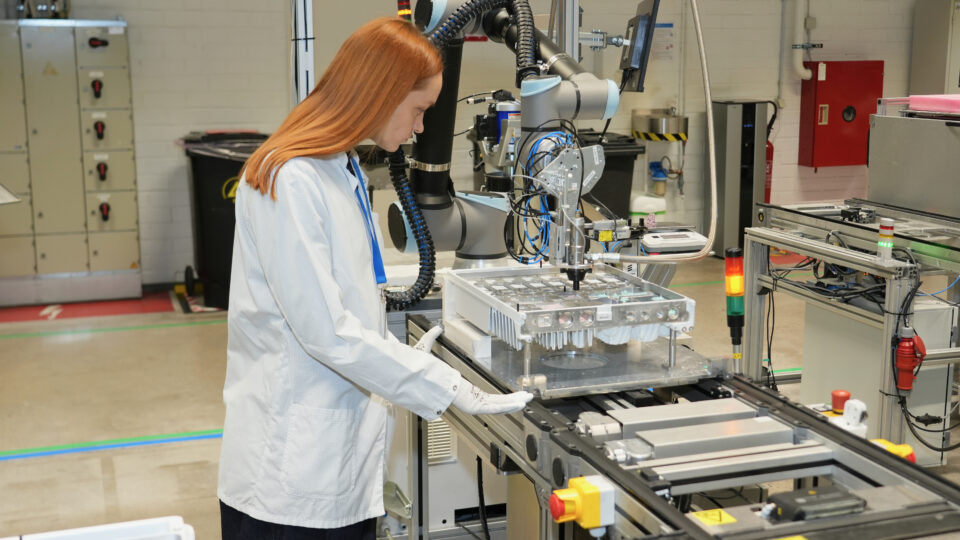The debate was moderated by Trialoog’s editor-in-chief, Silver Tambur, who opened with a provocative question: Are tax hikes ever justified during an economic downturn?
Minister of Finance Jürgen Ligi argued that tax increases are necessary to stabilize Estonia’s public finances and to cover rising defence spending, noting that both national security and the social system require new sources of revenue. “It’s important to look at the dynamics of the economy. The economy declined when taxes weren’t raised and is starting to recover just as taxes are being increased,” Ligi remarked.
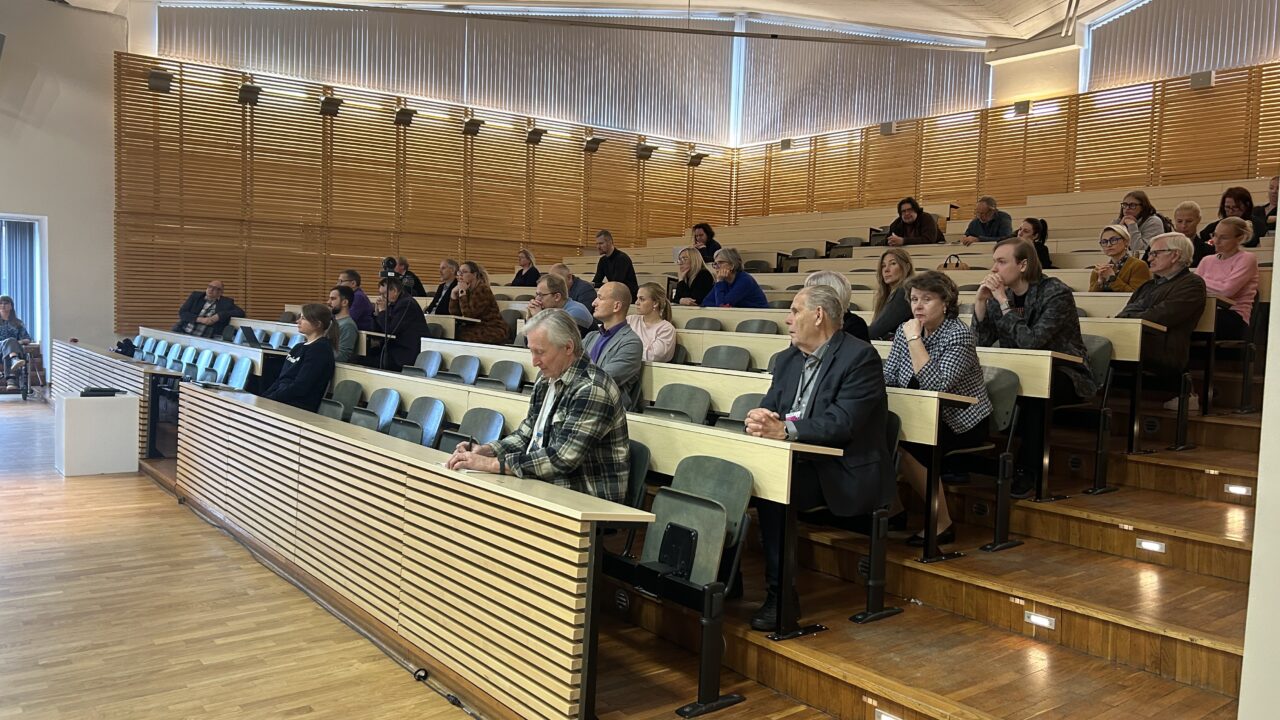
A heated tax debate drew a large crowd to TalTech’s assembly hall. Photo: Liisu Kirke Normak
Taxes are not a punishment
Ille Nakurt-Murumaa, president of EVEA (Estonian Association of Small and Medium-Sized Enterprises), raised a central concern for entrepreneurs: Have tax decisions been made in haste? “Entrepreneurs don’t want constant tax hikes; they want stability and long-term, well-considered policy,” she said, stressing that transparency and consistency in the tax system are essential.
According to her, exemptions and tax incentives create a complex and burdensome environment that primarily benefits large companies, leaving small and medium-sized enterprises at a disadvantage.
Heili Hein-Sula approached the issue from a broader societal perspective. In an aging society, there are fewer taxpayers and a growing burden on social services. “If we’re not ready to raise taxes, we’ll have to make painful cuts in services. It’s a serious dilemma.”
She emphasized that discussions about tax policy must be broader and include citizens. “As a society, we need to decide whether we are willing to move toward higher taxes or prefer fewer public services,” said Hein-Sula.
Minister Ligi spoke passionately about the principle that state funds are a shared resource—not merely “the taxpayer’s money.”
“Taxes are not a punishment – they are our collective fund, which we’ve all contributed to in order to accomplish big and necessary things no individual could achieve alone.”
Reflecting on the complex state of public finances, Ligi described the role of the finance minister as being in a constant state of crisis management. While things may appear chaotic, he assured that the government is doing its best to maintain transparency. “It might look like everything is on fire,” he said, “but actually, everything is under control.”
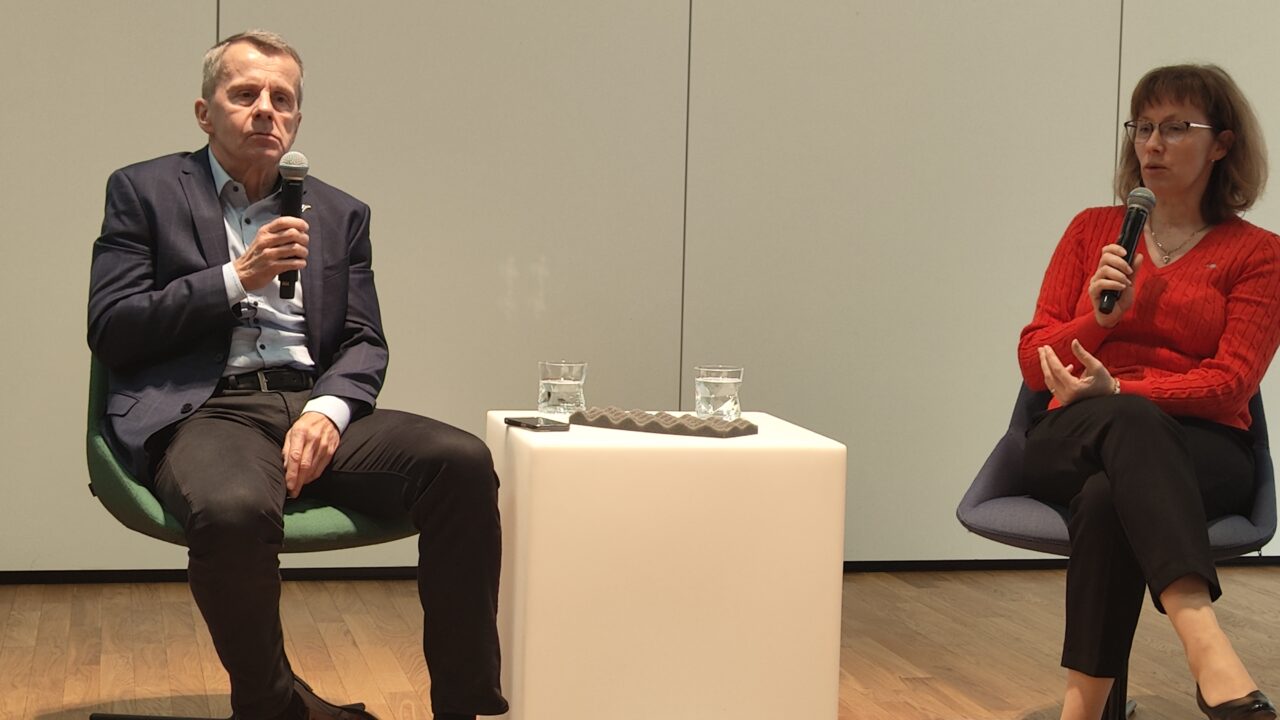
Jürgen Ligi and Ille Nakurt-Murumaa sharing their economic perspectives. Photo: Eveliis Vaaks
Tuition fees as motivation
The topic of university funding sparked an animated discussion in the room. Heili Hein-Sula acknowledged that her view might be unpopular among faculty members, but she believes a moderate tuition fee would be reasonable and would encourage students to take their education more seriously.
According to Jürgen Ligi, free higher education has led to a funding crisis in the system. “Young people should understand that higher education benefits them in the long run, and a small tuition fee would help underline its value,” he said.
The debate also touched on foreign investment and innovation. “The state cannot create entrepreneurs,” noted Ille Nakurt-Murumaa. She emphasized the need for a shift in societal attitudes—when entrepreneurship is viewed positively, more businesses emerge, and with them, more taxpayers.
Nakurt-Murumaa also pointed out that Estonia’s economy relies too heavily on subcontracting and low-value-added products. “We need to increase productivity and move toward higher-value-added production. We can’t compete with countries like Bangladesh in terms of population or labor intensity—that’s not our path,” she said.
“Young people should understand that higher education benefits them in the long run, and a small tuition fee would help underline its value.”
Taxing the rich?
During the debate, Mente et Manu editor-in-chief Mari Öö Sarv raised a question from the audience: could Estonia’s budget issues be addressed by introducing a wealth tax or higher taxes on the wealthy?
From the entrepreneur’s perspective, Ille Nakurt-Murumaa argued that taxing the rich wouldn’t bring substantial added value to society. She noted that in Estonia, owning assets does not automatically mean being wealthy, and such taxation could increase social and regional inequality. “We won’t become rich by trying to find wealthy people to take money from,” she added.
Heili Hein-Sula pointed out that wealth taxes make up only a marginal portion of tax revenue both in Estonia and across Europe. In her view, wealth taxes would not significantly increase state revenue.
Jürgen Ligi argued that from an economic standpoint, the most sensible form of wealth tax would be a land or property tax. He called Estonia’s exemption of land under homeowners’ primary residences one of the country’s most misguided tax policy decisions, as it hinders fair contributions to society. He believes land ownership should carry a societal cost, since land is a limited resource and requires government spending on infrastructure and public services.
At the same time, Ligi opposes broader wealth taxation, saying it would likely stifle ambition and increase inequality.
“We won’t become rich by trying to find wealthy people to take money from.”
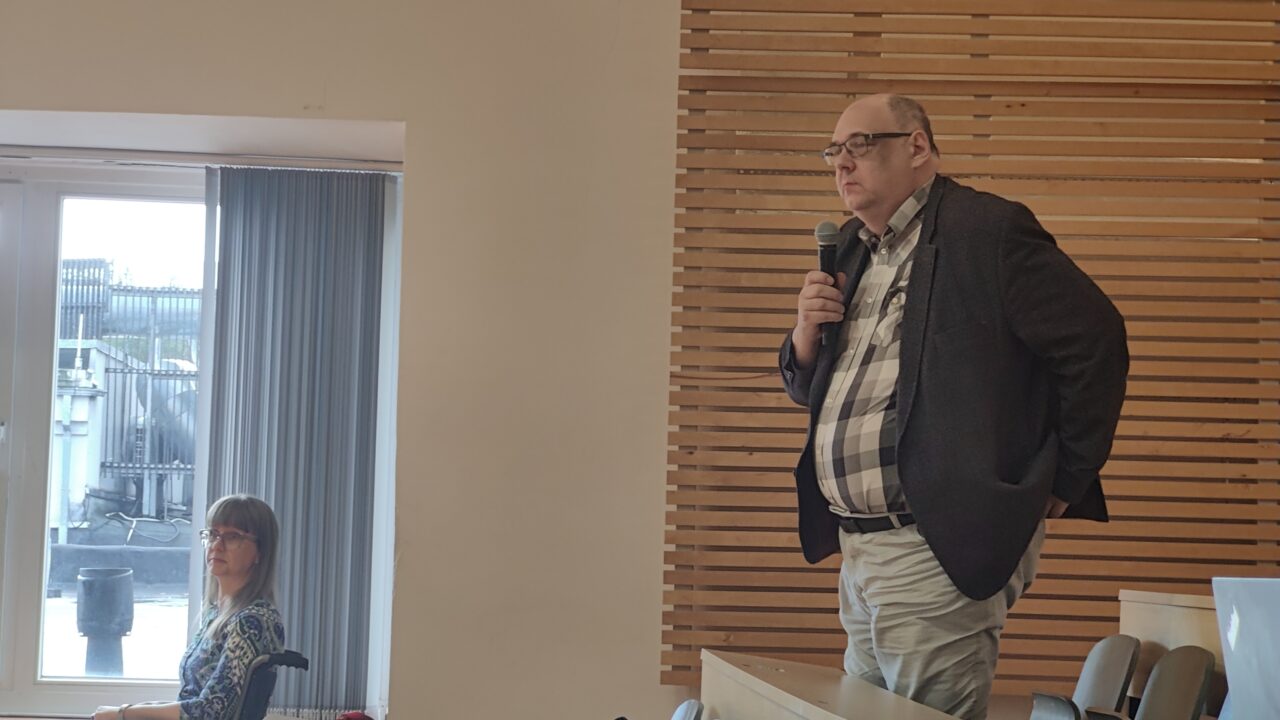
Tallinn University of Technology Vice-Rector for Entrepreneurship Erik Puura initiated a discussion on the car tax from the audience. Photo: Eveliis Vaaks
Car tax – who pays, and why?
Erik Puura, Vice-Rector for Entrepreneurship at Tallinn University of Technology, commented from the audience that taxes should ideally help solve a problem. As an example, he brought up the car tax. “Everyone understands that transport emissions are increasing over time, but if you look at the current tax system, the car tax doesn’t really seem to solve anything. Sure, the state collects more revenue, but what actual benefit does that bring?” Puura asked, adding that issues like traffic congestion could be better addressed through congestion and emissions-based taxes—as already implemented in many major cities.
Jürgen Ligi emphasized that the car tax is not just about raising revenue. “It’s madness that this tax has caused such an uproar. The state’s finances have long been in trouble, infrastructure is overloaded, and the environmental impact is real,” he said.
He stressed that the purpose of the tax is to curb the growth of car use and to raise funds for the common good—not to line the minister’s pocket, as some sarcastically claim.
Ligi argued that the stigmatization of the car tax is unfair, and that meaningful tax debates in Estonia are often overshadowed by populism. “We’ve become completely ‘Trumpified’ in our fight against taxes – it’s absurd how certain parties exploit the current situation with slogans like ‘let’s abolish all taxes,’” he said passionately in closing.
“We’ve become completely ‘Trumpified’ in our fight against taxes – it’s absurd how certain parties exploit the current situation with slogans like ‘let’s abolish all taxes.’”
**
The new panel event series launched by Trialoog brings together scientists, entrepreneurs, and policymakers six times a year to tackle the most pressing issues in Estonia’s economy and society.
Watch the full debate recording here:

